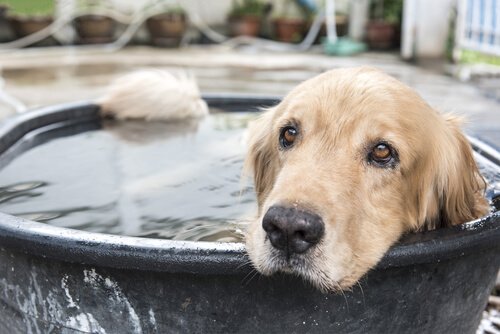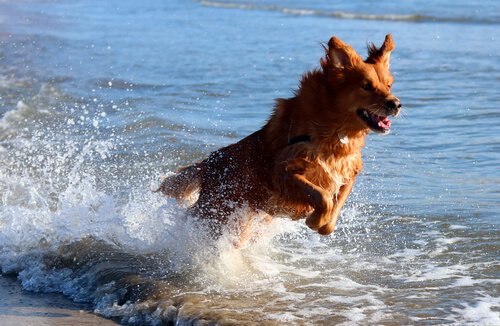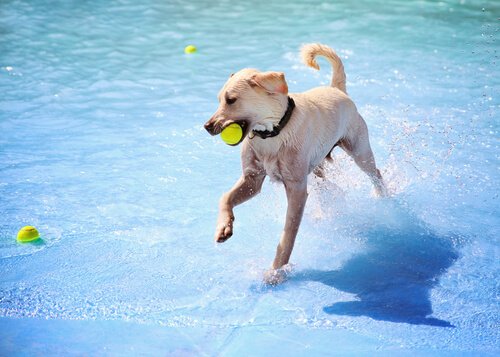How to Take Care of Your Pet in the Summer

Like people, dogs and cats suffer when it’s hot out. So today we will tell you how to take care of your pet in the summer — whether you go on vacation and take your pets, stay home, or leave them in the care of someone you trust.
Take care of your pet in the summer
Heat stroke does not only affect humans. Dogs and cats can also get heat stroke. When the temperature is higher than 85 ° F or 30 ° C, pets can get sick if their owners do not take appropriate measures.

Thick fur, pink skin and, in some cases, the inability to find water or shade on their own can mean high risk. Heat stroke can happen when your pet is in the sun for hours at a time. Owners who leave their dogs inside of cars are exposing them to certain dehydration and very likely death.
Symptoms seen in pets in the heat:
- Loss of consciousness
- Excessive panting
- Lethargy
- Dry nose, mouth and skin
- Depression
- Weakness
If your dog or cat suffers from heat stroke, take him to the veterinarian immediately. On the way, pour water onto your pet’s stomach and across the folds of his front legs (which would be similar to our armpits).
Some breeds of dogs are more vulnerable to hot temperatures, including short-snouted (brachycephalic) dogs like bulldogs or boxers. The same thing happens in pets with very long, dense fur, like Angora cats or Akita dogs.
As with people, the two groups most vulnerable to heat stroke are young and old pets, because their metabolisms don’t regulate temperature as well as healthy adult animals.
Tips for taking care of your pet in the summer
To keep your dogs and cats healthy, it is essential that you pay attention in the summer and do what it takes. Here are a few tips:
1. Avoid poorly ventilated places
We’ve already discussed the problem with leaving your dog in the car, even just a minute. It’s also not good to leave your pet locked in a room with no fresh air. Animals do not perspire like us to regulate their body temperatures, and they can’t get their own water either.
2. Do not leave your pet in the sun
Do not tie your pet up in a place with no shade for any reason, since in the hot midday hours, not only will they get dehydrated but they’ll also get ill and likely sunburnt. Keep in mind that certain areas are very sensitive on pets, like snouts (in dogs) and ears (in cats). Both cats and dogs have sensitive stomachs, too.

3. Provide plenty of water
It doesn’t matter that your pet doesn’t drink the water you give him in its entirety. Add an additional water bowl to the one you usually give your pet. Drinking water is an important way to counteract the heat. It’s essential that the water be clean and cool. Change the water every day to prevent mosquitoes from breeding in it.
4. Give your pet regular baths
How about a little refreshing water from the tap every afternoon (or whenever you have 5 free minutes)? A bath can really help your pet regulate his temperature. A park fountain can also be a perfect place (if pets are allowed in). The good thing is that he’ll dry very quickly and when you get home you won’t get water all over.
5. Be careful with your pet’s feet
Cement, sand, stones and other surfaces get very hot in summer. We don’t realize because we wear shoes, but the pads of a dog’s feet are exposed. The hot asphalt can burn his feet. Try to avoid the hottest hours when taking your dog for a walk.
6. Give your pet less food
When it is hot, your dog probably won’t want to eat as voraciously as he does in the winter. Pay attention to the dietary changes and digestion problems your pet may experience in the summer. With the approval of your veterinarian, you can reduce your dog’s serving size or wet the food with milk and water so he gets hydrated at the same time.
Take care of your pet in the summer!